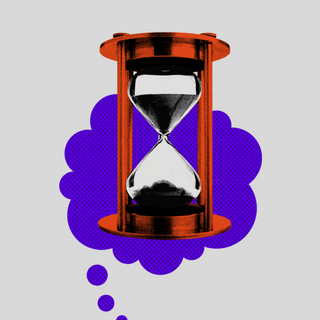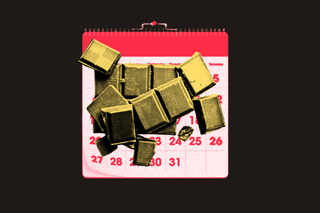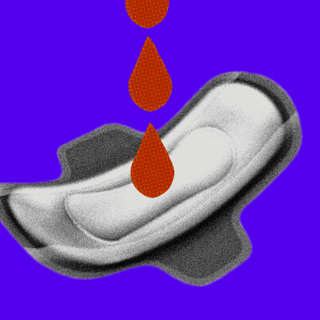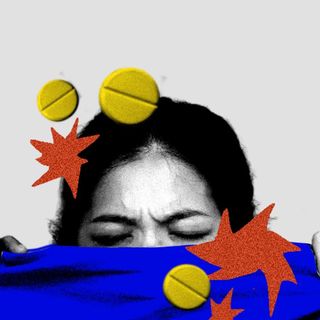
Period Food Cravings Really Exist and Have a Scientific Basis, Study Shows
The study found a link between insulin sensitivity in the brain and the menstrual cycle, explaining what could be driving these cravings.

Food cravings during periods have been successfully portrayed in memes and pop culture as being inescapable and, on occasion, insatiable. Attracting one particularly towards carbs and sweets — like ice creams, fries, grilled cheese sandwiches, and piaza — period cravings are touted as the leading saboteurs of people’s diet schedules. Yet, over the years, naysayers have made attempts to dub these cravings as nothing but a myth; one study actually concluded: “[I]t is actually advertising and social conditioning that has led us to demolish the Dairy Milk, not our hormones.”
This has been countered multiple times, too. The latest study, published yesterday in Nature Metabolism, found an intriguing link between insulin sensitivity in the brain and the menstrual cycle, shedding light on a possible mechanism that could be driving these cravings. In the process, it also acknowledges the truth to the cravings that people experience on their periods.
The researchers recruited 11 women for the first leg of the study to measure the brain’s insulin sensitivity during during two distinct phases of the menstrual cycle: the follicular phase, associated with the body preparing the egg for ovulation, and the luteal phase, occurring after ovulation when the egg awaits fertilization. The results showed that, during the follicular phase, the brain exhibited greater sensitivity to insulin; in the luteal phase, the sensitivity reduces and insulin resistance increases. These fluctuations, then, could disrupt the regulation of energy production for the body and potentially interfere with insulin’s role in controlling appetite and regulating glucose levels and metabolism, the study noted.
The second leg of the experiment was aimed at validating the findings the researchers had arrived at thus far. Using neuroimaging to examine brain activity across the menstrual cycle — this time, with a different group of 15 women — the researchers stumbled upon a similar pattern of insulin sensitivity in the hypothalamus, or the “control center” for food intake and metabolism.
“The brain contributes to metabolic changes and probably changes eating behavior across the menstrual cycle,” Martin Heni, co-author of the study and head of the clinical research center for diabetes at the Eberhard Karls University in Germany, told Scientific American. “This is nothing bad. It’s physiological, but it may explain what many women report to us about what they feel across the menstrual cycle. This can be one underlying mechanism.”
Related on The Swaddle:
The Popularity of ‘Emotional Eating’ Begs the Question: Why Do People Use Food to Cope With Stress?
“As most studies on the action of insulin in the brain have focused on men, metabolic changes during the menstrual cycle in women remain poorly understood,” Nils Kroemer, a neuroscientist at the University of Bonn in Germany who wasn’t part of the study, wrote in a simultaneously-released editorial, dubbing the results of the research as “striking.” Continuing, he added, “By demonstrating the vital role of the action of insulin in the brain in orchestrating cycle-dependent adjustments in whole-body insulin sensitivity, their study may pave new avenues for optimized treatments that consider a correspondence between hormonal fluctuations and insulin sensitivity.”
It isn’t the first time that scientists have attempted to unravel the mystery behind period cravings, though. A 2016 study suggested that the sweet-vs.-savory-cravings also correspond with the rise-and-fall of different reproductive hormones: estradiol (or, estrogen) and progesterone, which drive us to yearn for carbs, at times, and stuff ourselves with sweets, during other times.
But those aren’t the only hormones responsible for fluctuating tastes and appetites. “Your serotonin levels also drop, while [y]our cortisol levels are steadily on the rise. The reduction of your feel-good hormone paired with the increase of your stress hormone makes you crave sugary foods, so that you can boost your serotonin levels once again and cheer yourself up,” notes one article.
Some experts also believe that craving for chocolates, in particular, is because its high in magnesium — an element that the body runs low on during the pre-menstrual phase. “During your period, your body is going through physiological changes. Your hormones are out of whack, causing you to crave certain nutrients,” Justine Roth, a dietician nutritionist, had told Women’s Health Mag. “If you’re craving something like that, you should listen to it. Otherwise it’s just going to get louder… [But i]t’s all about moderation,” she adds.
While a bunch of studies have focused on the role of estrogen-progesterone and serotonin-cortisol in period cravings, the present study is one of the first to explore the connection between insulin sensitivity in the brain and menstrual cycle-related food cravings. While further research with larger sample sizes is certainly needed — especially to factor in the influence of obesity, birth control usage, or conditions like polycystic ovary syndrome — these findings have certainly paved the way for a deeper understanding of the physiological mechanisms underlying these cravings, potentially offering insights into managing them and improving overall wellbeing for menstruating individuals.
Devrupa Rakshit is an Associate Editor at The Swaddle. She is a lawyer by education, a poet by accident, a painter by shaukh, and autistic by birth. You can find her on Instagram @devruparakshit.
Related


This Whole Time, Period Products Didn’t Use Actual Human Blood to Test Efficacy
